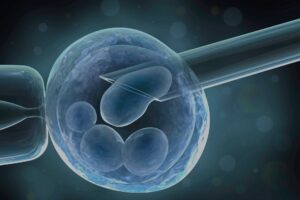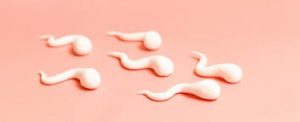Boost Your Fertility: How to Increase Sperm Count Naturally


It is possible to improve sperm count naturally and with the help of medical assistance. A low sperm count, also called oligozoospermia, is where a man has fewer than 15 million sperm per millilitre of semen.
Having a low sperm count can make it more difficult to conceive naturally, however, with Assisted Reproduction Techniques it is possible to get pregnancies and birth in case of low sperm count.
In this article, we’ll delve into the world of sperm health, exploring what affects it and how you can take steps to “How Increase Sperm Count “.
Healthy sperm are the key to successful fertilization, and there are several factors that can influence their health. At IVF Conceptions, we’re dedicated to providing you with comprehensive guidance on improving your fertility and enhancing your chances of conception.
Infertility in males is more prevalent than we think. This can be due to abnormal semen analyses- like less sperm motility, abnormal shapes of sperm, and low sperm count.
Low sperm count is associated with infertility in many males and is one of the common reasons making it hard to conceive. Low sperm count means that the actual number of sperm in a milliliter of semen is less than the normal sperm count ( average standard range).
Begin your surrogacy journey with IVF Conceptions today!
Mobile: +91-8800481100 ( WhatsApp, Line, Viber)
Email: neelam@ivfconceptions.com

 What Determines Sperm Health?
What Determines Sperm Health?
Sperm health is influenced by various factors, including quantity, movement, and structure:
- Quantity
For optimal fertility, it’s recommended that a single ejaculation (ejaculate) contains at least 15 million sperm per milliliter. A lower sperm count can make it more challenging to conceive, as there are fewer candidates available to fertilize the egg.
- Movement (Motility)
Sperm must move actively to reach and fertilize an egg, navigating through the female cervix, uterus, and fallopian tubes. This movement is known as motility. While pregnancy is still possible with less than 40% of sperm in ejaculate being motile, higher motility significantly improves the chances of conception.
- Structure (Morphology)
The typical sperm possesses oval heads and long tails that work in tandem to propel them forward. Although not as critical as sperm quantity or motility, the structure of sperm can impact fertility.
What is Normal Sperm Count
The normal sperm count ranges from 15 million sperm per millilitre (mL) of semen to over 200 million sperm. Everything less than 15 million sperm per milliliter is considered low, or 39 million sperm per ejaculate. Oligospermia is also defined as a deficiency of sperm cells in the semen sample. Sperm counts are over 200 million sperm per millimetre are considered high or above normal.
Causes of low sperm count in Males
There can be various factors for low sperm count. The factors have been divided into three categories –
- Medical factors – There are various medical reasons for low sperm count such as Erectile or ejaculatory issues, diseases like cystic fibroid or cystic fibrosis, swelling of veins, pre-infections or sexually transmitted infections, care for a variety of disorders, immune system problems, and prior male reproductive surgery; medical operation, or prescription for a number of conditions.
- Environmental factors – A number of environmental causes are known for low sperm count such as overheating your testes can reduce the production of sperm. This means that anything from the hot tub to the laptop on top of your lap can decrease your count. Certain potential environmental factors include exposure to herbicides, pesticides other heavy metals, and synthetic chemicals. Sperm production could also be impaired by exposure to X-rays or other sources of radiation.
- Lifestyle factors – These are generally considered controllable or man-made causes and can be reversed with a simple change in the lifestyle. These factors include – Sperm count can also be lower in activities such as heightened drug use and alcohol and the use of tobacco or vaping. Anabolic steroids, which are typically used to improve muscle mass, almost always decrease the testicles and the development of sperm. Sperm production is reduced, too, by marijuana and opioids.
More resources about Male infertility:
10 ways to boost sperm count in a male
Sperm DNA fragmentation- Cause and treatment
Everything you need to know about sperm quality and fertility
Signs of low sperm count
If your sperm count is low, you may experience some problems in your sexual drive as well as in your daily life.
Signs and symptoms of low sperm count include the following –
- Erectile dysfunction
- Reduction in body and facial hairs
- Swelling in testicles
- Low sex drive
- Pain in testicles


Diagnosing low sperm count
Diagnosing low sperm count is done easily with a sperm analysis test. It is done any day with 4-6 days of absenteeism with simple semen submission in the IVF clinic. There is no reason to feel awkward about the sperm analysis test. Just remember one thing it is a test required like any other test to diagnose a disease.
In semen analysis, you can collect semen in a container in your doctor’s office.
The other tests may include the following –
- Hormones or chromosomal checks in blood
- Testicular or prostate visualization ultrasound
- Biopsy in case of blockages to assess sperm production
Treatments for low sperm count
There are many treatments available for increasing sperm count. These treatments include –
- Hormonal treatments – Because either too low or too high levels of testosterone or other hormones can cause low sperm numbers, treatment of drugs and other treatments can help to restore fertility. Recall how infertility can be caused by the use of anabolic steroids, testosterone, or even most over-the-counter testosterone boosters. So, try to avoid these.
- Medications –Medicines may be used to treat infections in the reproductive tract. Infections should be handled quickly. Sperm count may not always return to normal when tissue scarring has occurred properly even if the infection has been correctly treated.
- Surgery – An operation is an option in case of large varicoceles, obstructions, or sperm problems leaving the body. An example is a small outpatient surgery that can correct a varicocele and reverse previous vasectomies. In other cases, sperm can be collected directly from the testicle or epididymis for aided reproductive procedures, such as in vitro fertilization (IVF).

 How to Increase Sperm Count Naturally?
How to Increase Sperm Count Naturally?
At IVF Conceptions, we emphasize the importance of adopting healthy lifestyle practices to enhance sperm health. Here are some steps you can take:
- Maintain a Healthy Weight
Research suggests that increasing body mass index (BMI) is linked to decreasing sperm count and motility. Maintaining a healthy weight can positively impact fertility.
- Eat a Balanced Diet
A diet rich in antioxidants, found in fruits and vegetables, can improve sperm health. We recommend choosing a variety of colorful fruits and vegetables to provide a broad range of antioxidants.
- Prevent Sexually Transmitted Infections (STIs)
Infections like chlamydia and gonorrhea can cause infertility in men. It’s crucial to limit the number of sexual partners and consistently use condoms to protect against STIs.
- Manage Stress
Stress can hinder sexual function and disrupt the hormones needed for sperm production. Techniques such as meditation and relaxation exercises can help manage stress effectively.
- Get Active
Moderate physical activity can boost the levels of powerful antioxidant enzymes in the body, which can protect sperm. Regular exercise is an essential component of a healthy lifestyle.
Lifestyle changes and low sperm count
There is no one reason but there are several reasons why lifestyle changes can contribute to low sperm count. These are as follows –
- Too much masturbating or sex – Too often, ejaculation will lead to a lower sperm volume in your semen. If you want to become pregnant, sex around the time of ovulation is best to have. You can have sex every other day during ovulation time.
- Obesity – Weight loss is one of the greatest changes in lifestyles needed to promote fertility. Men with a BMI of over 25 have slightly less healthy sperm than men with no obesity.
- To maintain optimal sperm health – Men need a variety of nutrients. A summary of certain primary food sources and recommended nutrients is provided here –
- Sperm count and motility L-carnitine — this is the nutrient necessary for the proper function of sperm cells. Taking L-carnitine supplements can help increase the number of sperm and enhance your chances.
- Zinc — Zinc is a trace mineral that increases sperm and enhances function, shape, and quality.
- Folic acid — men with low folate levels are more likely to have too few or too many chromosomes which can lead to birth defects or a greater risk of miscarriage.
What to Avoid to increase the sperm count
Sperm can be vulnerable to environmental factors, so it’s important to take precautions:
- Don’t Smoke: Smoking is associated with lower sperm counts, so if you smoke, consult your healthcare provider to explore strategies for quitting.
- Limit Alcohol: Excessive alcohol consumption can reduce testosterone production, lead to impotence, and decrease sperm production. If you choose to drink, do so in moderation.
- Avoid Lubricants: While further research is needed on the effects of lubricants on fertility, consider using fertility-friendly lubricants if necessary, or alternatives like mineral oil or canola oil.

 How to Increase Sperm Count :
How to Increase Sperm Count :
Science-Backed Strategies to Boost Male Fertility
- D-aspartic Acid Supplements
D-aspartic acid (D-AA) is an amino acid found in certain glands, such as the testicles, semen, and sperm cells. Studies suggest that D-AA supplements may increase testosterone levels and sperm count, especially in men with low testosterone levels.
- Regular Exercise
Regular physical activity is not only beneficial for general health but can also increase testosterone levels and improve semen quality. However, moderation is key, as excessive exercise can have the opposite effect.
- Adequate Vitamin C
Vitamin C, known for its immune-boosting properties, may also improve fertility by countering oxidative stress, which can harm sperm. Studies have shown that vitamin C supplements can enhance sperm motility and count.
- Stress Reduction
Chronic stress can negatively impact both sexual satisfaction and fertility by increasing cortisol levels, which can lower testosterone. Stress management techniques, such as meditation and exercise, can help mitigate these effects.
- Vitamin D
Vitamin D deficiency has been linked to low testosterone levels. Taking vitamin D supplements may increase testosterone and improve fertility, especially in men with deficiencies.
- Tribulus Terrestris
Tribulus terrestris, a medicinal herb, has been shown to improve erectile function and libido, although it doesn’t directly raise testosterone levels.
- Fenugreek Supplements
Fenugreek supplements have been associated with increased testosterone levels, strength, and sexual performance in various studies.
- Zinc Intake
Zinc is an essential mineral for male fertility, and low levels are linked to low testosterone and poor sperm quality. Zinc supplements can help address these issues.
- Ashwagandha
Ashwagandha, an ancient medicinal herb, may improve fertility by boosting testosterone levels. Studies have demonstrated significant improvements in sperm counts and motility.
- Maca Root
Maca root supplements have been found to enhance libido, sexual performance, and even sperm count. While the evidence is not conclusive, it suggests potential benefits.
Conclusion
Therefore, various factors contribute to the low sperm count. Some of them can be corrected, by simple changes in lifestyle. So, watch before you take alcohol or smoke as these can also lead to low sperm count.
In conclusion, male fertility is a complex issue, but it is not insurmountable. By implementing these science-backed strategies and adopting a healthy lifestyle, you can take significant steps towards boosting male fertility and increasing your chances of successfully conceiving.
If you’d like to learn more about IVF, Egg Donation, or surrogacy services globally, check out the rest of our website: IVF Conceptions. We offer legally secure and affordable surrogacy consulting services for FREE.
Begin your surrogacy journey with IVF Conceptions today!
Mobile: +91-8800481100 ( WhatsApp, Line, Viber)
Email: neelam@ivfconceptions.com
FAQs for How to Increase Sperm Count
How can I increase my sperm count naturally?
You can naturally increase your sperm count by adopting a healthy lifestyle. This includes maintaining a balanced diet, regular exercise, managing stress, avoiding smoking and excessive alcohol consumption, and getting adequate sleep. Additionally, certain foods and supplements may help boost sperm count.
What foods help increase sperm count?
Foods rich in antioxidants, such as fruits (berries, citrus fruits), vegetables (spinach, carrots), nuts (walnuts, almonds), and whole grains, can help increase sperm count. Also, include zinc-rich foods (oysters, beans) and foods high in omega-3 fatty acids (salmon, flaxseeds) in your diet.
Does exercise affect sperm count?
Moderate exercise can have a positive impact on sperm count and overall reproductive health. However, excessive, intense exercise may temporarily reduce sperm count. It’s essential to maintain a balanced exercise routine for optimal results.
Are there any supplements to boost sperm count?
Supplements like zinc, folic acid, vitamin C, vitamin D, and coenzyme Q10 have shown potential in improving sperm count. Consult with a healthcare professional before taking any supplements to determine the right dosage and suitability for your needs.
Can stress impact sperm count?
Yes, chronic stress can negatively impact sperm count and quality. High stress levels may lead to hormonal imbalances that affect sperm production. Stress reduction techniques like meditation, yoga, and relaxation exercises can be beneficial.
How long does it take to see results when trying to increase sperm count naturally?
The timeline for seeing results when trying to increase sperm count naturally varies from person to person. It may take several weeks to a few months of consistently following a healthy lifestyle and dietary changes to notice significant improvements in sperm count.
Are there any lifestyle changes that can help?
Lifestyle changes that can help increase sperm count include maintaining a healthy weight, quitting smoking, reducing alcohol intake, avoiding excessive heat exposure (saunas, hot tubs), and practicing safe sex to prevent sexually transmitted infections that can affect fertility.
What medical conditions can affect sperm count?
Medical conditions such as varicocele (enlarged veins in the scrotum), infections, hormonal imbalances, and genetic factors can affect sperm count. If you suspect a medical condition is impacting your sperm count, consult a healthcare provider for evaluation and treatment.
Are there specific vitamins that aid in sperm production?
Yes, vitamins like vitamin C, vitamin D, and folic acid are known to support sperm production and quality. These vitamins can be obtained through a balanced diet or supplements if recommended by a healthcare professional.
Is age a factor in sperm count?
Yes, age can be a factor in sperm count. Sperm count and quality tend to decline as men age, although the exact age at which this decline becomes significant can vary. It’s essential to consider age-related factors when addressing fertility concerns.


